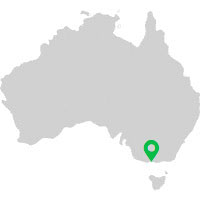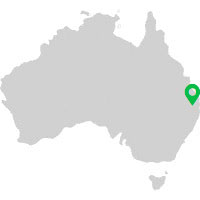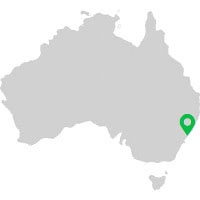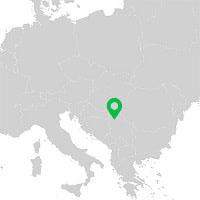

Search engines are the backbone of the internet. Without them, it would be nearly impossible for users to find any kind of relevant content. If you intend to optimise your website, it’s absolutely crucial that you know how these complex programs and algorithms to their job.
This is where the search engine begins its journey. Search engines use programs that are called “crawlers” to help them analyze websites in their entirety. The crawler follows links all over the internet while grabbing content from every page. It uses this compiled content in order to build search indexes for the search engines to use later on.
The process of crawling involves scanning websites and collecting data about their various elements. Crawlers collect titles, subtitles, images, and keywords in order to help search engines get a better idea of what the website is about. More advanced elements can be collected as well. The layout, ad location, and link bundles of the website are important information for use in advertising.
The way crawlers use links is particularly interesting. When a web crawler goes over a website, it takes all the links that were featured and makes them next in line for pages that should be visited. These pages will often have their own links that are featured. The process is then repeated ad infinitum.
Indexing is the next logical step after crawling. Once the crawlers have obtained all the necessary information about a website, the search engine processes it and adds it to a database. Indexes are just logs of every single website the search engine has skimmed through with crawlers. It might seem like a daunting task to index every site, but it’s necessary if the search engine is to function. Information about every single website is stored on countless hard drives, which are then used to relay that information around the world. Tech giants like Google have data centres with thousands of petabytes of data that are related to searches alone.
Search engines use algorithms to connect your search with websites around the internet. They check search queries with billions of pages to determine the most relevant page. The process is so complex that search engines guard their algorithms as patented industry secrets.
The reason these algorithms are closely guarded is to prevent web designers from gaming the system. Knowing how the search engine works would lead to designers gaming the system by doing what the search engine values most in terms of ranking. People exploiting search algorithms is nothing new. In the past, search algorithms weren’t as complex as they are now. They used to focus solely on important keywords and this lead to pages being stuffed with as many keywords as possible.
Search engines have evolved quite a bit and now their mechanism for ranking links is more complex than ever. This is why search engine optimisation is such a hot topic for web designers. The quality of your link depends on the website it comes from. High-authority websites are prioritized over link directories. Above all else, quality original content is considered the best way to optimise links.
There are a lot of reasons why good quality original content brings in more page visits. The most intuitive example is the usefulness of the information. If your page contains something that interests users, it will obviously become popular over time. Once you’ve received a large number of visits, search engines will further push your website ranking because of its popularity
At one point in time, search engines valued link importance above all else. The number of high-quality incoming links would propel a website to the top of ranks. This lead to web designers posting links for their website in every corner of the internet. Due to this exploit, search engines received modifications to combat such methods.
They now prioritize links based on several factors. Having links from high authority websites makes the links more valuable. If the links are shared through diverse sources on social media it will also lead to an increase in traffic.
Keywords are the bread and butter of search engines. They represent the most commonly used phrases that are featured in queries. There are two types of keywords that search engines look out for. Properly applied keywords can make a website rank much higher than their counterparts.
There are two main types of keyword: Long-tail and a short-tail. Short tail keywords are usually up to three words in length and they are pretty simple to use and apply. Long-tail keywords contain more than three words and they can be pretty complex. Short tail keywords are easy to use but they are common enough that search engines do not value them all that much. Long-tail keywords can be tied to many descriptors that make it much easier for search engines to match them to a query. Adding a location to a long tail keyword makes it extremely precise and allows the search engine to know where to start.
Website crawlers don’t just do a surface level assessment of a website. They analyze every bit of metadata and many parts of the HTML code. Title descriptions don’t seem like something that would be valued highly, but they aren’t disregarded by search crawlers. It makes sense that they would be features, as the title description often describes what the website is about.
Links that lead to your website don’t have to be limited to outside sources. It’s perfectly viable to add links from your own website. These are called internal links and they can be a useful tool if used correctly. They allow crawlers to search your website more efficiently.
Online marketing experts use their knowledge of search engines to get websites as many page views as possible. Web designers have to cater their websites to the preferences of the common user. Combining these two things is the key to a successful marketing campaign.
Search engine algorithms are extremely complex, but they aren’t sophisticated enough to mimic human understanding. This is why optimising websites is still very much possible. With an advanced understanding of how search engines work, a designer can create a website that drives a large amount of traffic in a short amount of time. The difficult part is combining the right kind of content with perfect web design.


How to Develop a Unique Digital Marketing Strategy for E-Commerce


How to Generate Traffic from Facebook Page








Dunavska 13
21000 Novi Sad, Serbia